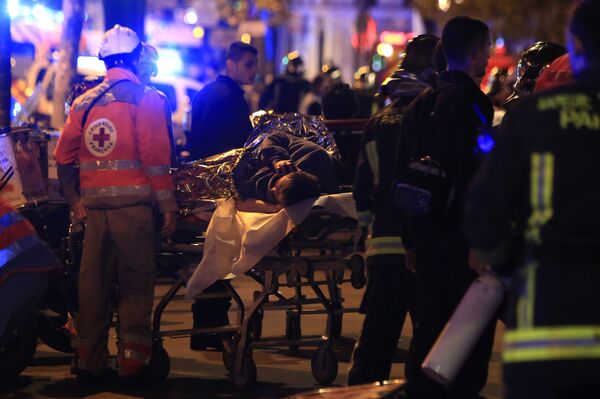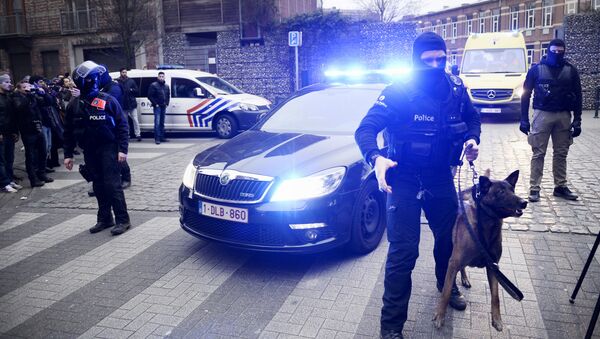Law enforcement and intelligence services in France and Belgium came in for criticism in the wake of the November 13, 2015 Paris attacks — in which 130 people were killed and hundreds injured in a series of shootings and suicide bomb attacks — when it was revealed many of the terrorists were on the intelligence radar.

"If there's something we've learned from the Paris attacks, it's the lack of information-sharing between intelligence services across the continent. The unity and solidarity among Member States must lead to a real partnership which obtains concrete results", said Esteban Gonzalez Pons, Vice-Chairman of the EPP Group.
.@gonzalezpons:"The unity and solidarity among Member States must lead to a real partnership which obtains concrete results." pic.twitter.com/Yf5gpgDn1l
— EPP Group (@EPPGroup) 25 October 2016
It emerged after the November 13 attacks that one of the terrorists, Abdelhamid Abaaoud was able to cross from Europe by ferry and meet jihadists in the UK, despite having an international arrest warrant out on him.
There was further criticism of the lack of border controls within Europe — under the Schengen agreement — which allowed Abaaoud and his fellow attackers including Salah Abdeslam, to travel several times between France and Belgium in the run-up to the attacks and — in Abdeslam's case — following the attacks.
'Big Challenge'
The EPP group, in a statement, said: "Loopholes in European security must be closed."
The Chief Negotiator of the European Parliament, Monika Hohlmeier MEP, is currently in talks with EU Ministers on the Terrorism Directive, which will criminalize traveling abroad for terrorist purposes. It will also criminalize traveling with the intention to commission or contribute to a terrorist offense, or receiving and providing training for terrorist purposes as well as terrorist financing.
#ParisAttacks: loopholes in European security must be closed @gonzalezpons @MonikaHohlmeier https://t.co/7GQM4iuj2e
— EPP Group (@EPPGroup) October 25, 2016
"It is a big challenge for the EU to provide an adequate response to the threats posed by the European fighters returning from Syria or Iraq or other trouble spots around the world. Member States have to improve the exchange of good practice on preventing the recruitment of citizens by terrorist organizations, radicalization by Salafists and hate preachers as well as detecting and disrupting the terrorist supply chains," Hohlmeier said.
"They should also forward any information to other EU countries that could assist in the detection, prevention, investigation or prosecution of terrorist offences. Apart from this, Europol will be further equipped to be a coordination hub between national police institutions and intelligence services."
Fighting terrorism also means tackling the causes of terrorism. We have to fight ideas with ideas — @JKingEU in #EPlenary #SecurityUnion pic.twitter.com/6glOQ7ZKVn
— European Commission (@EU_Commission) 25 October 2016
"They also have the task of monitoring on and offline terrorist activities such as propaganda, recruitment, training, hate preachers and terrorist financial flows across the EU and in cooperation with third countries", she added.


